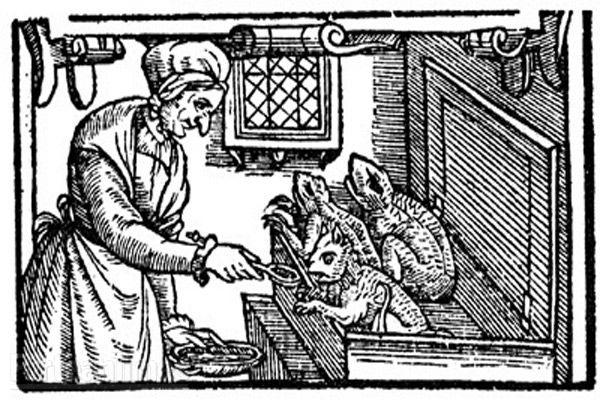Magic requires 3 types of training. There’s no point in doing magic if you completely abandon one of these three. Doing magic without these is like having a car, but no petrol or just simply not knowing how to drive. Don’t be surprised if you see people trying to practice while ignoring this basic advice; it’s surprisingly common. Most people do not have someone like me to advise them and they fall into many traps which prevent growth. I often find it hard not to say something when I see it, but my experience proves it doesn’t end well when giving unsolicited advice. You will find me quite sarcastic and critical of the Occult community or Occulture. Magic is impressive. What strokes people’s egos is rarely impressive. People are drawn to stroke their own egos, not do impressive magics and the community is full of people like that. The community is often full of people who write trashy books which do very little but distract people from their path and make people think they’re more developed than they really are. So yeah sorry but my writing is going to be full of criticism for the average self-declared witch and easy-to-pass degree systems.
You need Magic Muscle (or skill), FamiliariTea (or familiarity) and Lore (or knowledge). These are three major training areas. Perhaps one day, someone will point something out to me that doesn’t neatly fit into one of these 3 categories and I will have to review this, but for now, these areas of training cover everything for any practitioner and to date I haven’t seen anything that doesn’t fit neatly in these sections. All of them need to be trained together.

Watching someone practice without skill is like watching a child behind the wheel of a parked car maybe with no petrol. The child might be making brum-brum noises and telling everyone they can drive. Often the best thing you can do is encourage them and try not to sound patronising. Even if they can metaphorically start the car (i.e they have some basic skills), sometimes you see someone who hopes to develop familiarity with the roads by just driving with no knowledge or familiarity of the way (no FamiliariTea or Lore). Often they end up driving in circles and claiming authority because they are very familiar with a local roundabout. In fact, they have been driving in circles around it for 21 years and they are familiar with a handful of houses (or deities and popular modern representations of them), but nothing authentic or beyond their very limited world and perhaps 8 different roads by the roundabout, but not where they go (limited FamiliariTea and no Lore). They will tell you they need not know about any motorway, or A-roads either, their roundabout is just fine for them thank you very much! If they tried to get somewhere such drivers would easily end up in a dead end in the wrong end of town, because they lack knowledge (or Lore) of the unchartered terrain and their familiarity is limited. Imagine people who like to drive while they disregard previous travellers’ comments because that traveller was too stuffy, too confident, too male, or not pagan enough. This is like a huge part of the magical community.

Trust me don’t advise people. To continue the car metaphor, sometimes listening to people talk about their magic practice without the Lore factor is like hearing someone decide they’re going to drive from Gran Canaria to Madrid and when you can’t help but say “You’ll need a ferry or something to carry your car across the ocean” they say “No I don’t! You do magic your way and I’ll do magic mine!” and if you’re anything like me, then you feel an irrepressible need to pull out a map, maybe the one that tells you where Gran Canaria and Madrid are, and they say “that map was drawn by stuffy entitled male Jewish Cartographers, not this 1990s neopagan feminist author who knows my local roundabout very well.” and “oh that’s your definition of Gran Canaria and your definition of Madrid.” Then you leave them to do their own definition of driving from Gran Canaria to Madrid, which mysteriously does not involve driving across an ocean and you walk away wondering what’s the point in having terms like “Gran Canaria” and “Madrid” in the first place, if you can treat the terms like they can mean wherever you fancy them to mean. But anyway, as I was saying before I went on a tangent rant about Occulture, these three are necessary for training in magic:
Magic Muscles
The first part of training, I call “magic muscles“. In reality, it is merely practising magic. Why “muscles”? Well, because building muscles requires continual effort with minimal breaks. Not working out regularly, allows the muscles to atrophy. The same goes for your mental muscles. You need to keep practising! Regularly!
Magic requires a strong ability to visualize, an ability to get into trances, and strong willpower. All of these are developed by practice. Your brains learn patterns that start becoming automatic so you can call on them at will. This is often called a skill. Using your willpower to manipulate dream reality and move energy strengthens said willpower. Practices, such as doing rituals with purpose and meditating, help develop those mental muscles, but that’s not the limit of this training.
Often the energy body needs to develop as well. The energy body is like a network of biological wires a bit like nerves. If they are used regularly the subtle body adjusts to allow for increased flow. But pushing too hard too fast can burn things out. Without developing the subtle body, grounding tumultuous energy, calling up powerful energy and astral projection are all impossible. So a huge part of training is practice to develop the spirit. This is a bit like developing tendons. It takes time and cannot be rushed. A gentle daily exercise is the best for it.
So many magical practitioners tell their students that it’s dangerous to do magic until they’re more ready and keep them from doing it. There are often two motivations for this. The first is that some magic is dangerous. While this is true, it is always possible to give non-dangerous exercises to initiates, so in my opinion, this reasoning is pish. Unfortunately, many practitioners read the same books over and over with the same information often plagiarising off each other and they never get beyond neophyte-level and basics. In fact, that was the reason for starting this website, to help people who have learned the basics and want to take a step further. Such magical practitioners never learn much, so they are always nervous about people overtaking them. They have often gone around the same roundabout of magic practices for 5, 10, 15 or 20 years and only learned so much. Then they need to keep their students’ development stunted to match their own. Alternatively, students of big orders like the Hermetic Order of the Golden Dawn, the A .’. A .’. and many other orders have rigorous training manuals and syllabi that require continual practice. Their content is often vast, and complicated and puts off a lot of people who struggle to follow instructions or to understand them. While the syllabi do not allow for individuality, they often give strict rigorous daily exercises and produce much more practised students than the many magical practitioners who rally against them. Frequently, however, these groups have rituals that are extremely wordy, and often their material focuses on ritual action rather than internal feeling. It often takes practice to get both internal feelings and ritual action in unison.
FamiliariTea
Magic often involves working with strange spirits and strange planes. Think about the times you have been with strange company. Were you at ease? When communicating with people from different cultures, we frequently need to learn new ways of communicating. Some things which seem normal to us might be taboos in other cultures. Some people speak in different languages to us that we cannot understand or learn at the drop of a hat. This is the same with interacting with spirits.
A practitioner of magic has to cultivate familiarity with spirits and planes so they can approach them with confidence and use intermediaries that help.

Have you ever heard of a familiar? It’s not a cat as TV shows like Charmed and Sabrina would have you believe. In fact, the myth of the witch’s familiar where it is a demon that the witch allows to suckle on their own flesh is almost closer to the truth. A familiar is a spirit and it’s just that, “familiar” to the magical practitioner, a spirit to which they are familiar and with which they are accustomed to communicating. It certainly does not need to be an imp like in witch-hunter lore and it definitely does not need to suckle on the witch’s flesh. However it is a spirit and a relationship is often cultivated in regular rituals which often feature cleaning and feeding the spirit, just not necessarily blood or breast milk as stories would tell you. These also aren’t entirely uncommon. See the late Jake Stratton-Kent’s True Grimoire where the pact is sealed in blood.

When you keep communicating with the same few spirits you learn to communicate with them well and soon you can use them to communicate with the unfamiliar spirits that you will come across on your journey. As well as that, they do things on spiritual planes that are difficult for humans to do. So this is a key part of your learning.
Often many ceremonial magicians learn all about spirits, particularly angels and demons, but they never get very familiar with them. Their knowledge is very academic and if they summoned the spirit they might be able to read the spirit’s description to the spirit, but they wouldn’t recognize the spirit or be used to communicating with it. They would often struggle to communicate with the spirit. This is very important and why many ceremonial magicians are often unable to get very far in their practice.
It is worth noting that many grimoires state that their spirits give certain familiars. This tells you that it was a significant thing to read about when working with such grimoires. Also, Stephen Skinner in his book on Solomonic magic says that often a magician works with a “paredos” which is a familiar spirit. Finally, a few of the Papyri Gracae Magicae are for summoning a familiar spirit. So clearly is a significant part of magical practice.
I conclude that having familiar spirits is important, but also you might need a few of them. Not all spirits can help with all things. Some are restricted to specific planes, some have limited knowledge and/or power. So building allies and familiarity with many spirits is extremely helpful in your magical practice. Without the familiarity, you are likely to be led astray by some entity that you don’t know if you can trust.
Also, it’s not only worth you knowing the spirits, but they also might need to know you. They won’t just do everything for you just because you know their name and description in an old book. However, if you have worked together on stuff before and maybe struck bargains where they did not feel ripped off then they might be happier to work with you again in the future! Otherwise summoning a spirit is like getting a video call on Facebook from someone you do not know. Why would they bother to pick up?
Now that’s all about familiar spirits. What about familiar planes? Well, a lot of magical practices from around the world involve various types of OBE (Out of Body Experience). From Native American Medicine men and their Vision Quests, to journeying through the Lokas of tantric texts, the Daoist Shamans and their 36 heavens, and finally rising on the planes or Astral Projection in the Western Mystery Tradition. Well, journeying to various underworlds and heavenly planes is not unusual in magical practice around the world, but knowing the way IS important. You should be able to tell what plane you are in and be able to get back to your body eventually. That comes with the ever-personal FamiliariTea.
This is important because some things are only available on certain planes and there are all sorts of things masquerading as them on other planes and unless you can tell the difference you will be none the wiser.

Finally, a brief mention of rituals. Often, because of American individualism and demands for creativity, everyone is ready to write their own rituals. I hear things like “Oh I don’t like angels, I prefer spirits of druid techno-mages” so let’s swap out Raphael for Zorg and Michael for Xarxes…” and so on. Often people do things with no familiarity with the rituals in their original format. Then they assume they know all about a tradition having never done a single ritual as it was originally intended. They have no familiarity with the very tools they wield. It’s like watching a person use a flat-head screwdriver as a chisel and because sometimes it works they will refuse to admit it might not be how it was originally intended. Then the next thing you know they’re trying to use a broom handle as a chisel and because they were allowed to swap out the chisel for the flat-head screwdriver why shouldn’t they be allowed to also exchange it for a broom handle? Next thing you know, it’s not working, but people are going around saying that was exactly how it was supposed to be in the first place and the problem must be the chiseling action. You’re not allowed to suggest they use a chisel because that’s denying them their indefeasible right to be different or their own “truth”. They then blame the whole tradition of attempting to chisel things in the first place for being wrong. Familiarity with rituals is so absent in modern practice. Try the original before making a change. For all you know, you might be swapping out secret alchemical symbolism for cartoon figures and then assuming that was how the ritual was always meant to feel. FamiliariTea should be had with how the ritual was originally meant to sound, feel, look and flow.
Why do I call it FamiliariTea with tea in it? Well, honey, it’s time to spill the tea. Tea is often associated with truth. You can see how it developed: spill the truth, spill the T, spill the tea. It also frequently has the meaning of a context-affected truth. We need to be aware of is that spirits are like people when it comes this context-affected truth. They all have gossip. They have things that they want you to know and things they don’t want you to know. Often when we talk about spilling the tea we are talking about truth that comes with an agenda. Tea comes in many different forms: Camomile, Green Tea, English Breakfast Blend, PG Tips, Yorkshire Tea and more. Truth however does not. Truth is always one. What you are developing her is personal truth; not objective truth.
Often we talk about people ‘their truth’ and ‘multiple truths’, but truth is still one, singular. What we are actually talking about is perspectives. Perspective is a relative truth. A truth with a specific context. Without the context, we might make unjust assumptions and it might seem like we are not aware of the full truth, but actually, that doesn’t mean there is a second truth, it means that there is more to the full truth than, what we were originally considering.
We never know any truth without a perspective or context so some practitioners of Chaos Magic suggest we should go through life assuming there is no absolute truth. You may have heard the axiom “Nothing is True, everything is permitted”. However without absolute truth, we cannot form commerce, we can never agree or reason and we have no defined spiritual path. By simply entertaining the notion, it allows people to ignore all evidence in front of their faces and believe in something that has no basis in shared consensus reality. Something untrue like flat-earthism or vaccines causing autism is then fair game. They have always been allowed to have “their truth” so why should this be different? Then they could go around acting on their own relative morality and upsetting or hurting other people.
Often when it comes to spiritual things there are some things we just do not know as a species yet. We have not developed the means to prove them. So there are all sorts of people running around with their own “truths” when it comes to systems of magic and mysticism. This time they mean theories. But unfortunately, they are allowed to act as if their theory is entirely true, when it hasn’t been proven to be so.
The distinction I want you to take from this is that familiariTea is not truth. If you let a person tell you entirely who they are then they’re not going to share their shortcomings, their failures and the like. In fact the more they get your trust the more some spirits are confident enough to downright lie. This is why familiariTea needs to be backed up with knowledge (or Lore). FamiliariTea is full of assumptions, part truths and contexts. FamiliariTea is personal, truth is not.
So I conclude familiariTea is very important. This is achieved by regularly doing rituals to supplement and feed your familiar spirits and regular practice with astral journeying, which also requires a strong energy body. Finally, try the rituals in their original format to achieve familiariTea with what the original author was trying to achieve before changing things unless he was extremely clear about his goals and symbolism and it does not overlap with yours.
A good place for many people to start is the Elemental Kings Ghob, Paralda, Nixsa and Djin. Then move quickly onto other spirits. Franz Bardon provides a list in his book on evocation, but don’t get too trapped with elementals that are based on a single element. Anyone who has done much evocation magic will tell you many elementals are not just one element and working with only these 4 planes could be limiting. Also, don’t run headfirst into summoning the spirits from the Lemegeton. Find a middle ground. Remember you are cultivating relationships here. Don’t just waltz in and ask for everything you want and leave. Would you like dealing with someone who only shows up when they want something???
Also, start astral projecting. Begin with nearby planes where you can still sense some of the physical world, but use things like tarot cards as anchors to help you navigate specific realms. Visualisation and good pathworking can be a springboard into new realms but don’t assume you definitely got the right one first try.
Lore
Lore is knowledge, but as a term, it also encapsulates the act of passing that knowledge down. This is the key one for the long run. There is so much knowledge out there. Look at what inspired your practices and gain knowledge about it. Read its history. When you come across something new, you will appreciate it if you know what it is about even if it’s not comfortable and familiar yet. Since lore has this association with the handing down, I expand the term and treat it as if lore is not just information, but also knowing where that information came from and how you came to know it. This is a key part of magical knowledge. While we can’t make a cut in reality and check the cross-section for etheric and astral planes, we only know about them because of what a book has said and our experience of those realities having already read about them. Our beliefs about them coloured our experience so we cannot 100% trust our experience.
It is helpful if you read a single tradition at a time and follow it to its natural conclusion. Like in Buddhism all the way to enlightenment texts, in Daoism the extent of internal alchemy and yoga read all about the union of Shiva and Shakti and the Upanishads. These often have much more depth of knowledge to learn than the typical Llewellyn intro to Wicca book which will be repeating the same old Wheel of the Year, 4 elements and how to do a spell with a piece of rope and some lavender.
When reading a book pay attention to the author’s authorities. Who did this person respect? Who do they quote? Where did they get their information from? Who were they probably reading when they wrote? What context does that give us? When they use a term think about what the term means to them rather than just superimposing your own assumptions and opinions over someone else’s writing. This is why it is more important
Unfortunately, at this point, there’s no end to my knowledge and learning. There’s still more to learn at every step and if I, who am committed to the pursuit of knowledge, experience that then unless you’re a much faster reader then you will do.
Three Stages of Magic Training
When you are training in magic there are 3 main stages you go through at each stage there is a different combination of the above three. Don’t worry, this is not as complicated as I am making it sound. I have named these stages after Medieval Crafts where you would normally have Novice, Apprentice, Journeyman (or hereafter Journeyperson), Adept and finally Master. If that’s too hard to remember you can just call them 1, 2, 3, 4, Master. However, this is years of training. No one becomes a master during a weekend course. Sorry Reiki “Masters”. Anyway, let’s start with Novice or “1”.
1. Novice
During this period, the practitioner needs to focus on a lot of practical stuff. They need to very quickly discover their energy body. Unfortunately, we have been ignoring it for most of our lives so to experience it properly we need to really speed it up and really build our mental muscles. So the magic muscles part of training plays a huge part in this stage. The practitioner needs to develop familiariTea as well, but mostly with their own energy body and their own energy impressions. They also begin to learn to communicate with entities by communicating with elementals, a spirit guide or two, and some friendly deities. They might learn some theory too for example the names of the elemental kings, the chakras, the tarot, but this is the least important part of this training.
2. Apprentice
At this stage, the practitioner is competent with both the physical side and the energy side of magical rituals. They can achieve basic change and summon typical entities. They have familiarity with some basic entities such as elemental kings and a few deities, which they need to use to increase their spiritual team to a legion of spiritual allies. They need to develop the magic muscles and energy storage to allow for astral projection and they need to get familiar with a few planes. They should also study various theories regarding planes, tarot cards, and more.
3. Journeyperson
At this stage, the initiate is ready to travel from circle to circle learning how different people do things. They must practice their craft, but that is mostly to maintain their skills rather than to build their skills. Their magical muscle training is mostly run-of-the-mill now; a regular cleaning, building and storing exercise, Building familiarity with entities on the other side is still important, but they should have their allies now. The training is much more focused on obtaining knowledge of philosophy and systems of ascent.
4. Adept
The Adept has essentially left their coached training. They should have the knowledge they wanted and through practice, they will try to achieve intimate FamiliariTea with some aspect of the divine, but just one aspect. They are on their own now and often benefit from a temporary withdrawal from the community and in particular magical community so they can focus entirely on their own path. They are required to depend on their own discipline to achieve mystical ascent. Ideally, this is concentrated into a period of 6-18 months, but normally, this requires a daily devotional. Many initiates do not have the devotion to complete this and so abandon the path here. Sometimes from their practice of mystical ascent, they will discover a new teaching to bring back to the rest of the world or community. Often the initiate goes through a period of darkest night where their faith is tested and their guides may temporarily leave. They might not believe in what they are doing anymore during this darkest night. If the adept can persevere through this, they achieve the golden dawn of divine light. This is where they are reassured that magic is real, the spirit guide returns and reveals divine light to them. After this period of time, the Master no longer has an attachment to the ego.
Master
Sometimes the guide will provide guidance with regard to transcendental states, but the master’s earthly work is complete. A Buddhist expression is quite relevant here, “Before enlightenment, chop wood and carry water. After enlightenment, chop wood and carry water.” This expresses that the master returns entirely to his earthly life. Like a videogame or movie, it might seem like it is a meaningless story at this point having transcended to ultimate divine planes, but as the master plays along with the earthly plane they allow themselves to get involved again as a gamer gets involved in the unimportant story of the video game. This time however they are able to see through the illusion of reality. They also frequently demonstrate less involvement with the ego.
Conclusion
These are the three main areas Muscle, FamiliariTea, and Lore. There are a number of practices to get these done.
- Never stop reading and learning, but pick good books. Books that contain information that is well-researched and unique. (Audiobooks and well-researched online courses still count.) Pick books where the author was very literate and researched things. Not just someone who thumbed their way through a few 200-page Llewellyn books. I have known an author or two to who made reference to books in their Bibliography section which they obviously had not read because if they had they would not have been labouring under some misapprehensions.
- Familiarise yourself with planes (including this one) and the spirits that live on them. Make friends everywhere on all planes. You might need help on one someday. Know the origin of the rituals you practice. Recognize that what you were told by spirits and the planes they worked on is your experience, your Tea, but not necessarily true.
- Practice magic. Practice visualization, practice energy work, and practice using your willpower. Keep developing your magic body while you’re at it. Conjure spirits, invoke spirits, and rise on the planes.
